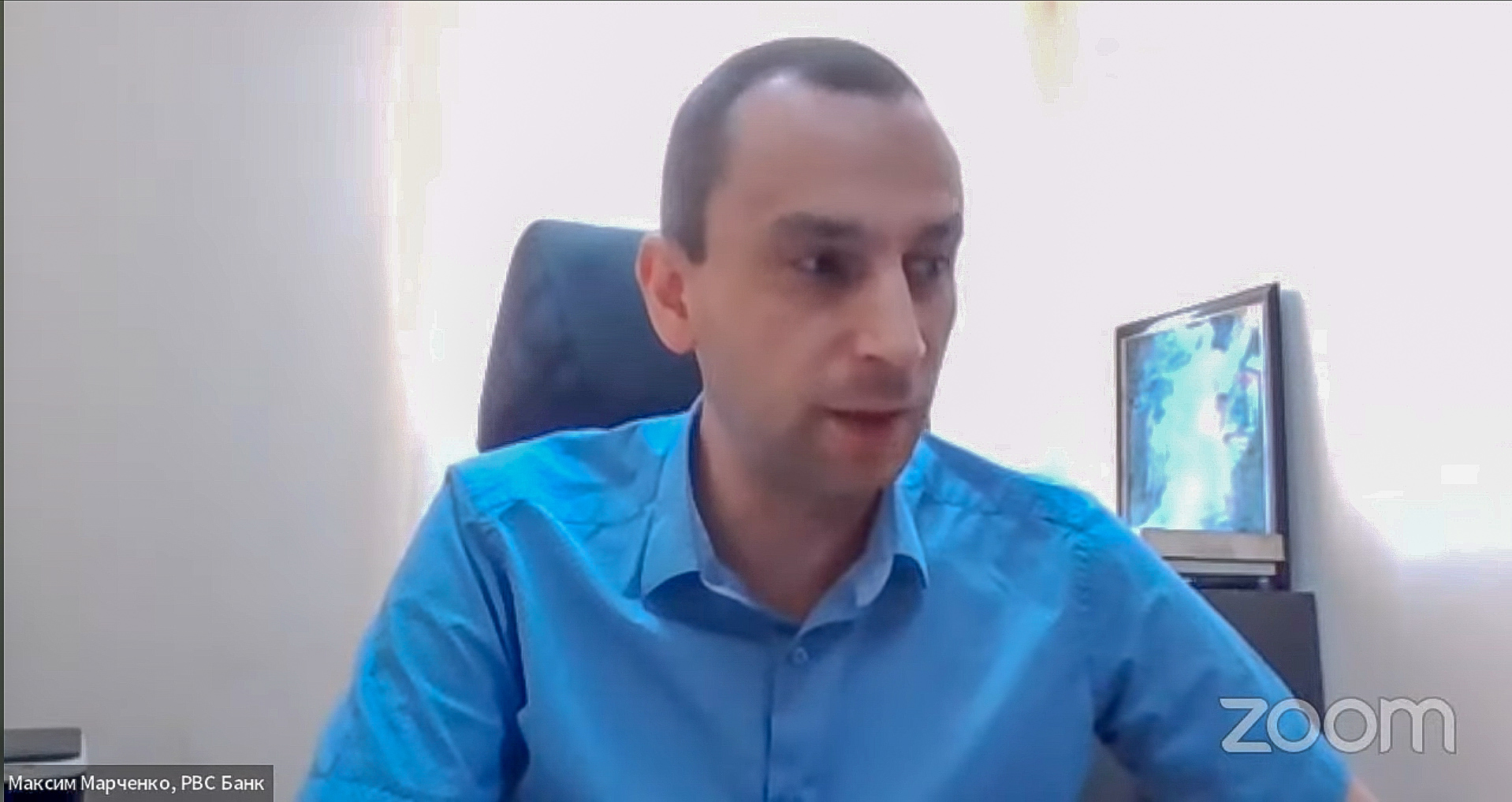Expert opinion
Investments in precious metals: profitable or not?
In an unstable economy and rising inflation, many people are looking for ways to preserve their savings. One of the most popular options is investing in precious metals such as gold and silver. In this blitz interview, we will talk to Maksym Marchenko, Head of Dealing Operations at RVS Bank, to find out more about whether it is profitable to keep money in precious metals, how they can be bought and sold, and how inflation affects gold prices.

| Screenshot from the roundtable “The gold market during the war” |
Is it profitable to keep money in precious metals, gold or silver?
In short, it is. Gold prices are constantly growing. If we compare gold or silver, then at the moment silver is sold with VAT, gold without VAT, so the choice is obvious.
How can gold be bought and sold?
Today, you can legally buy precious metals either in banking institutions in the form of bank bars or 999.9-certified coins, or in jewelry stores in the form of jewelry of various grades. Banks can sell precious metals only from recognized international manufacturers that are members of the LBMA group. Resale for bank bullion or 999.9 coins takes place in banking institutions, while jewelry is traditionally accepted either by pawnshops or official purchasers.
What was the overall price of gold/silver and how did the market change over the year?
The gold price rose sharply at the beginning of the year and has updated its historical levels several times in a row. The most common denomination for investing is the 100 gram bar. The price of such a bar is +8-10% over the global forex price. This margin is due to high demand and lack of supply to meet demand, in particular due to restrictions under NBU Resolution 18, which prohibits banks from buying gold from recognized LBMA producers abroad.
How stable are investments in precious metals considered to be?
Precious metals, in addition to being physical raw materials, are essentially also a universal currency and have been performing this function for at least many centuries. For example, any precious metal coin minted in any country or at any historical time still retains its value and can be easily converted into physical currency, even if it is physically damaged or only partially preserved. This is not the case with paper money, for example, many people still have Soviet rubles or Ukrainian coupons in their hands, and their current value will depend on the desire of numismatists to buy them and will be either zero or very small.
What is more profitable to keep: money in a hryvnia deposit, in dollars, or in gold?
I believe that it depends on the tasks set by the potential client. If you need to invest for a long period of time, for example, as a “pension savings”, it is more profitable to invest in precious metals, it will be the best protection against inflation and depreciation. If the client has just free funds that he or she is saving, for example, for a purchase, then a foreign currency or hryvnia deposit is preferable.
How are gold prices affected by inflation?
According to Ukrainian law, gold as a precious metal in Ukraine is effectively equated to currency, just like the dollar or euro. I believe that gold is the “currency” that does not have inflation. Gold cannot be “printed” or “multiplied” in any other way. The price of a troy ounce of gold is calculated in dollar terms, and the dollar also has a certain level of inflation, so dollar inflation directly affects the price of gold, increasing it.
If we consider gold/silver as an investment, is it better to buy jewelry or bullion?
If you look at the issue from a purely investment point of view, it is more profitable to buy bank bullion with a face value of 100 grams or more than jewelry. The price of a piece of jewelry includes all taxes and fees in the process of its manufacture plus the jeweler's labor, while the cost of making a bank bar is minimal.
Subscribe to our newsletter

Contacts
15, Yevhena Sverstyuka str.,
Kyiv, 02002 Ukraine
Email :
office@aub.org.ua
Phones:
+380 (44) 516-8775
